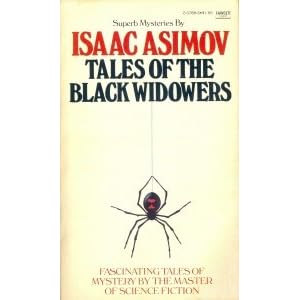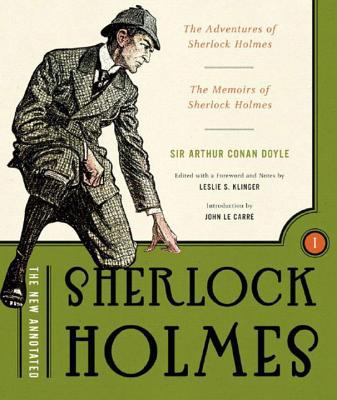by Neil Schofield
I was cock-a-hoop last month, well, two weeks ago, when Rob and John and everyone else was celebrating
Alfred Hitchcock's Mystery Magazine, because I realised I have an anniversary in February. February 2001 in fact, which was when my very first story appeared in AHMM. Actually it was a dead heat because I also had a story in EQMM that month but that's by the way and neither here nor there. 2001 was a good year for me: I had six stories published including my only ever cover story. I know how Rob feels. I was tickled to bits, and wanted to kiss the postwoman, but I didn't because you never know where that sort of thing is going to lead.
The editor then was Cathleen Jordan, whom I never really got to talk to because she died tragically and too soon. I did get an e-mail from her with a rare rejection of one story. She made it clear that she was onto me, had seen the end coming a mile off, but that she like the 'particularly good title'. I still have that title which is waiting for the particularly good story to come along to fit it. I was in Short Crime Fiction Heaven, happily getting used to the
ferlap of a contract coming through the door or the
flump of the complimentary copies hitting the deck.

Another anniversary comes along this month. In March 2004, I had a story in AHMM. A little story actually, no more than 4500 words. I had originally sent it to Zoetrope, who returned it with a nice handwritten note saying very enjoyable, but not for them. So, I mucked it around a little, changed the title and sent it to Linda Landrigan for her to have a butcher's. And it duly appeared in the March number in 2004.
A week later - no more - I had a phone call. From a Hollywood producer. It was a Sunday night, and Mimi was out - doing something, I don't quite know what. I
never quite know what. When she finally hove up alongside me I told her I had one word to say to her and the word was Hollywood.
Tell you what, though, the paramedics are quick off the mark in France. When Mimi had been pronounced out of danger, I filled her in: a female Hollywood producer wanted to option the story with a view to making it into a feature-length film. You can imagine how the champagne flowed that night. You can imagine it if you like, but the sad truth is we didn't have any in the house and it was too late to buy any.
Anyway, the following week all sorts of negotiations went on, and to my boyish delight I was involved in long-range early morning discussions about option payments and percentages of net receipts. I had conversations with the amiable Scott Lais in Contracts and Permissions at Dell, and from him I learned that there was another production company in the frame, for whom my producer had worked.
"We're in a bitter bidding war," I said to Mimi. I had to translate and explain and
that took the shine off a bit.
I spoke to the second production company and they seemed lukewarm, so I decided that all things being equal I would go with the original candidate.
A contract came, and was signed and was sent back. A three-year renewable option with staged payments. I thought I had died and gone to paradise.
The first cheque bounced.
It was then I realised that there is
Hollywood and there is
Hollywood.
That hiccup was sorted out after a fashion after a while. But the pattern or something like it was repeated: getting the instalments of money out of Ms Producer was like pulling teeth. Still, I stuck grimly to it, telling myself that even hotshot Hollywood producers can have little administrative problems. I invented an Accounts Person called Marsha who was the bane of everyone's life and who hated signing cheques would do anything not to sign a cheque even when she was ordered to and her job, livelihood and two-bedroom apartment depended on it.
We carried on like this, me in my fantasy world, and Ms Producer in hers, into 2005, when Ms Producer up and announced that she would be going down to the Cannes Film Festival to sell her film wares, and wouldn't it be great if, while she was traversing Paris, we could lunch. Her treat. My choice of restaurant.
I was now going through mental contortions such as only the most feeble of minds can produce. Suddenly Ms Producer was back on the A-List, the problems with the cheques had been simple Marsha-based aberrations. I resolved that I would ask - no, demand - a new clause in my contract under which Marsha would be told to hit the highway. I think I was in what psychiatrists call a fugue state. Elizabeth might be able to help me out here.
I had chosen the
Closerie des Lilas, on the corner of the Boulevard Montparnasse and just round the corner from where Hemingway lived. In fact the Closerie was one of his favourite watering holes, and today it is very posh. I sat at the bar with before me a small brass plaque which told me I was in the very seat where Hem used to park it on his frequent visits. I could imagine Hemingway nailing the plaque to the bar with his very own hands.

Ms Producer made it on time, and lunch ensued. A superb lunch, needless to say, outside on the
terrasse, in the sunshine. Sunshine without and sunshine within. I was being lunched by a Hollywood producer. Ms P talked about her plans, showed me the press pack -
the press pack! -for the film, including a mock-up of the poster. Wine was taken, casting was discussed: names were bandied about and I remember that Hugh Jackman was the principal bandyee. I bandied for all I was worth. Ms P told me that the South Koreans were interested in the project.
"What, all of them?" I quipped, up for for anything and eager to promote my sardonic Brit humour.
"No, just the ones that matter." said Ms P tersely.
Apparently, down in Cannes, she had hired a hospitality suite, had wined and dined various film coves. And covesses, I suppose. She presented me with a bottle of her specially-labelled champagne. And, remember, all this for a fourteen page short story turned down by Zoetrope.
Ms P produced plastic, we collected our personal belongings and parted on good terms, me with my press pack and bottle of champagne and the feeling that we were
that close, Ms P with her high hopes.
And it finished there; more or less. The tooth-pulling recommenced in the autumn, and as the effects of a Closerie lunch slowly wore off, the option slowly expired. There was some loose talk about renewing it, but I knew by then what anyone else would have known from the start: that I was in the hands of a wannabe who wasn't gonnabe. I knew that we weren't
that close, we were
that far away.
Ms Producer, when I Google her name today, is flogging wine and dating services on the Net. In a spirit of nostalgia, I Google the name of the story sometimes, and up pops Ms Producer's company site, with embedded somewhere in it the mock-up poster of a film that was not to be.
So what did I get out of all this? Quite a lot, actually.
I got several thousand bucks - however hardly won - about twelve times what I had been paid for the original story.
I got a
great lunch.
And for two or three years, I had the warm winds of Hollywood fanning my cheeks and ruffling my hair.
Which is a lot, I say.
And all that because AHMM published a little story of mine. Life is full of surprises, my mother used to say. And in this, as in most things, she was right.
I haven't given the real name of Ms P. A gentleman doesn't. And in any case, one day, who knows? Life is full of surprises.
Vive AHMM. And all who sail in her.
 I am delighted to report that the January/February 2014 of Alfred Hitchcock's Mystery Magazine
is out this week and features my 24th appearance in that fine
periodical. Even better, it marks my third chance to grace the cover (and what a perfect illustration it is!). "Devil Chased The Wolf Away" is a short story but the
history of how it came to exist is a long story, so you might want to fortify yourself with a cup of coffee or something. I'll wait.
I am delighted to report that the January/February 2014 of Alfred Hitchcock's Mystery Magazine
is out this week and features my 24th appearance in that fine
periodical. Even better, it marks my third chance to grace the cover (and what a perfect illustration it is!). "Devil Chased The Wolf Away" is a short story but the
history of how it came to exist is a long story, so you might want to fortify yourself with a cup of coffee or something. I'll wait.



























 Another anniversary comes along this month. In March 2004, I had a story in AHMM. A little story actually, no more than 4500 words. I had originally sent it to Zoetrope, who returned it with a nice handwritten note saying very enjoyable, but not for them. So, I mucked it around a little, changed the title and sent it to Linda Landrigan for her to have a butcher's. And it duly appeared in the March number in 2004.
Another anniversary comes along this month. In March 2004, I had a story in AHMM. A little story actually, no more than 4500 words. I had originally sent it to Zoetrope, who returned it with a nice handwritten note saying very enjoyable, but not for them. So, I mucked it around a little, changed the title and sent it to Linda Landrigan for her to have a butcher's. And it duly appeared in the March number in 2004. Ms Producer made it on time, and lunch ensued. A superb lunch, needless to say, outside on the terrasse, in the sunshine. Sunshine without and sunshine within. I was being lunched by a Hollywood producer. Ms P talked about her plans, showed me the press pack - the press pack! -for the film, including a mock-up of the poster. Wine was taken, casting was discussed: names were bandied about and I remember that Hugh Jackman was the principal bandyee. I bandied for all I was worth. Ms P told me that the South Koreans were interested in the project.
Ms Producer made it on time, and lunch ensued. A superb lunch, needless to say, outside on the terrasse, in the sunshine. Sunshine without and sunshine within. I was being lunched by a Hollywood producer. Ms P talked about her plans, showed me the press pack - the press pack! -for the film, including a mock-up of the poster. Wine was taken, casting was discussed: names were bandied about and I remember that Hugh Jackman was the principal bandyee. I bandied for all I was worth. Ms P told me that the South Koreans were interested in the project.